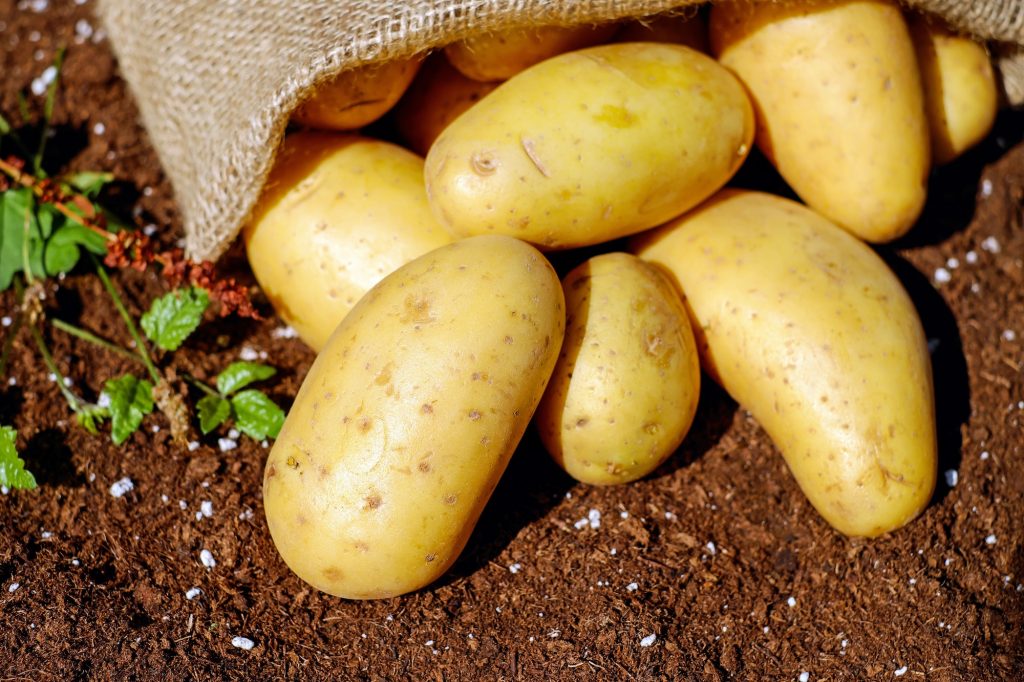When it comes to survival gardening, there are few crops that hold a candle to the trusty potato. Growing food in a post-SHTF situation requires crops that are easy to grow, have high calorie content, are easy to cook, and are easy to store. The potato meets all these requirements.
Easy To Grow
Potatoes are a fairly easy crop to grow. They do not require very fertile soil, grow well in cool climates, produce a yield of 10X of what you plant, and do not require a tremendous amount of skill. They can be grown in the ground and hilled, they can be grown in containers, and they can even be grown under a hay mulch.
High Quality Food
The potato is one of the few crops that a person could live off of exclusively, if they had too. Potatoes are a great source of carbohydrates, protein, and Vitamin C.
According to Carol Deppe, in her book The Resilient Gardener: Food Production and Self-Reliance in Uncertain Times , The average old school Irishman ate almost an exclusive potato diet. They ate approximately 13lbs a day that provided 4,500 calories and 120 grams of protein. This many potatoes also meet your Vit C requirements. If you are doing enough physical labor to require a 3,000 to 5,000 calorie diet, potatoes alone can meet most of your nutritional needs.
Easy To Cook
Potatoes are easy to cook. They can be boiled, fried, or baked. It doesn’t require a degree in the culinary arts to cook a potato. With a pot, a a skillet, or just a bed of coals; potatoes are so easy to prepare that even a Millennial could figure it out.
Easy To Store
Potatoes can be stored very easily in a root cellar for up to 10 months. Potatoes are best stored in the dark and in temperatures of 39-54 degrees f and at a relative humidity of 98%. They can also be stored by pressure canning in glass jars, although this is not the most efficient way to store large quantities of them by any means.
Summary
Anyone growing a subsistence or survival garden should include potatoes as one of the main crops. Few crops can provide as much nutrients for the amount of work and fertility required.
View the original article at Backwoods Resistance.
Scott Terry is farmer, survivalist, and writer who lives in the backwoods of the northeastern United States.You can sign up for the Backwoods Resistance Newsletter HERE and find him on Facebook HERE

